
Ixtapa-Zihuatanejo: A Twin Paradise on the Mexican Coast
Nestled on the stunning Pacific Coast of Mexico, Ixtapa-Zihuatanejo offers a perfect blend of modern luxury and charming tradition. This dual-destination boasts sun-kissed beaches, lush green hills, and a variety of activities for every type of traveler. Whether you are looking to relax on pristine beaches, indulge in water sports, or explore vibrant local markets, Ixtapa-Zihuatanejo has something special for you. Ixtapa is known for its resort-style amenities and beautiful beaches lined with high-end hotels and restaurants. The palm-fringed Playa El Palmar is perfect for sunbathing and swimming, while the Marina Ixtapa offers opportunities for fishing and sailing. Golf enthusiasts will love the world-class courses with breathtaking ocean views. Just a short drive away, Zihuatanejo offers a more laid-back and authentic Mexican experience. This fishing village retains its rustic charm with cobblestone streets, local markets, and traditional seafood restaurants. Visit the picturesque Playa La Ropa for a relaxed day by the sea or explore the local crafts at the Mercado de Artesanías. The vibrant local culture and warm hospitality make Zihuatanejo a must-visit. Together, Ixtapa and Zihuatanejo provide a unique and unforgettable experience that captures the essence of Mexico's Pacific Coast. From luxurious resorts to authentic local culture, this twin paradise caters to every traveler's dream.
Local tips in Ixtapa-Zihuatanejo
- Visit both Ixtapa and Zihuatanejo to experience the contrast between modern luxury and traditional Mexican charm.
- Bring cash as many local markets and smaller establishments might not accept credit cards.
- The best time to visit is between November and April when the weather is dry and pleasant.
- Try the local seafood, especially the ceviche and grilled fish, for an authentic culinary experience.
- Use sunscreen and stay hydrated, as the sun can be very strong, especially on the beaches.
Neighbourhoods in Ixtapa-Zihuatanejo
Ixtapa-Zihuatanejo: A Twin Paradise on the Mexican Coast
Nestled on the stunning Pacific Coast of Mexico, Ixtapa-Zihuatanejo offers a perfect blend of modern luxury and charming tradition. This dual-destination boasts sun-kissed beaches, lush green hills, and a variety of activities for every type of traveler. Whether you are looking to relax on pristine beaches, indulge in water sports, or explore vibrant local markets, Ixtapa-Zihuatanejo has something special for you. Ixtapa is known for its resort-style amenities and beautiful beaches lined with high-end hotels and restaurants. The palm-fringed Playa El Palmar is perfect for sunbathing and swimming, while the Marina Ixtapa offers opportunities for fishing and sailing. Golf enthusiasts will love the world-class courses with breathtaking ocean views. Just a short drive away, Zihuatanejo offers a more laid-back and authentic Mexican experience. This fishing village retains its rustic charm with cobblestone streets, local markets, and traditional seafood restaurants. Visit the picturesque Playa La Ropa for a relaxed day by the sea or explore the local crafts at the Mercado de Artesanías. The vibrant local culture and warm hospitality make Zihuatanejo a must-visit. Together, Ixtapa and Zihuatanejo provide a unique and unforgettable experience that captures the essence of Mexico's Pacific Coast. From luxurious resorts to authentic local culture, this twin paradise caters to every traveler's dream.
When is the best time to go to Ixtapa-Zihuatanejo?
Iconic landmarks you can’t miss
Cocodrilario Playa Linda
Explore Cocodrilario Playa Linda, the captivating wildlife refuge in Ixtapa Zihuatanejo, where crocodiles and nature come together in a breathtaking setting.
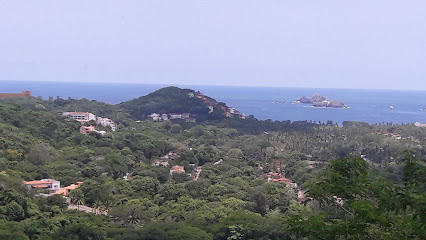
Park Royal Beach Ixtapa
Discover the luxurious escape at Park Royal Beach Ixtapa, where stunning ocean views meet exceptional service for a perfect tropical getaway.
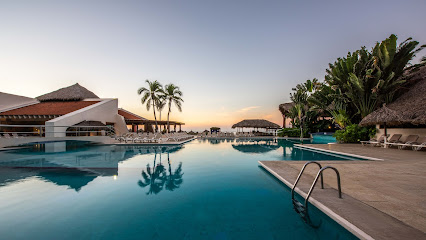
Krystal Ixtapa
Discover the enchanting Krystal Ixtapa, where pristine beaches meet luxurious amenities for an unforgettable getaway in Ixtapa Zihuatanejo.

Sunscape Dorado Pacifico Ixtapa
Experience a tropical oasis at Sunscape Dorado Pacifico Ixtapa, where luxury meets the vibrant culture of Mexico's beautiful coast.

Muelle Zihuatanejo
Explore the vibrant heart of Zihuatanejo at Muelle Zihuatanejo, your gateway to stunning coastal adventures and local culture.
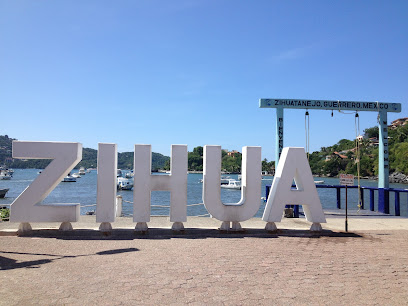
Rubens Hamburgers Ixtapa
Discover mouthwatering hamburgers at Rubens Hamburgers Ixtapa, where American fast food meets the vibrant flavors of Mexico in a casual, inviting atmosphere.
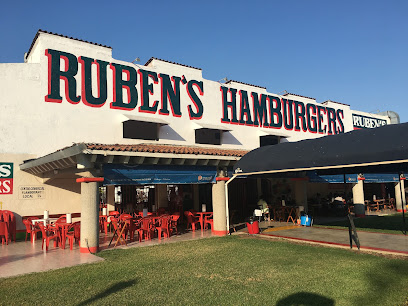
Delfiniti of Mexico
Experience unforgettable dolphin encounters and marine adventures at Delfiniti of Mexico, a top attraction in Ixtapa Zihuatanejo.
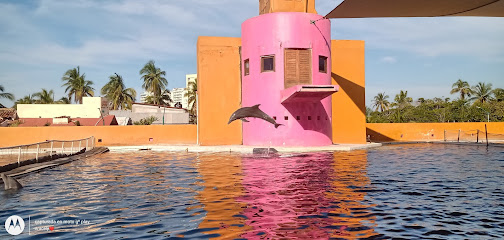
La Papa Loca
Experience a unique culinary fusion at La Papa Loca, where delicious American and Mexican dishes meet in the heart of Zihuatanejo's vibrant Centro.
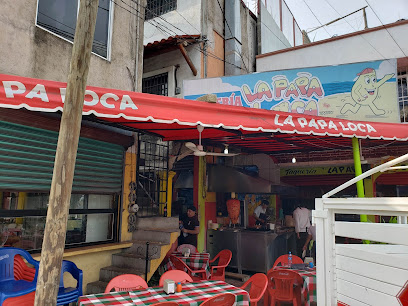
Club Med Ixtapa Pacific, Mexico
Discover the ultimate all-inclusive retreat at Club Med Ixtapa Pacific, where luxury meets adventure on the stunning beaches of Mexico.
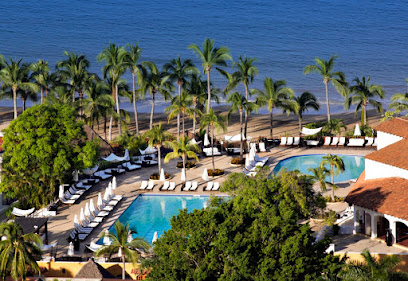
Restaurant El Tiburón De La Costa
Discover the essence of Ixtapa Zihuatanejo at El Tiburón De La Costa, where fresh seafood meets traditional Mexican flavors in a stunning coastal setting.
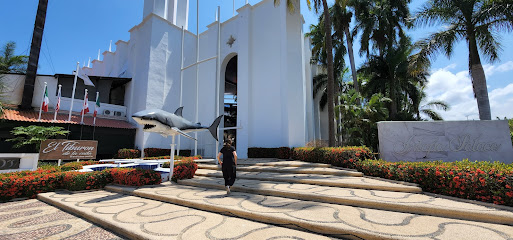
Malecón Zihuatanejo
Discover the charm of Malecón Zihuatanejo, a stunning waterfront promenade filled with local culture, exquisite dining, and breathtaking ocean views.
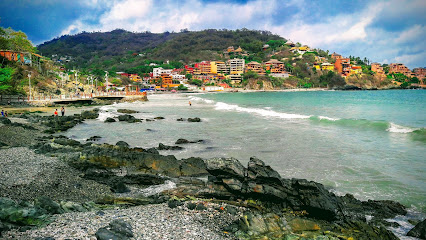
La Isla De Ixtapa Zihuatanejo, Playa Coral
Explore the breathtaking La Isla De Ixtapa Zihuatanejo, where sun-soaked beaches meet vibrant marine life for the perfect tropical getaway.
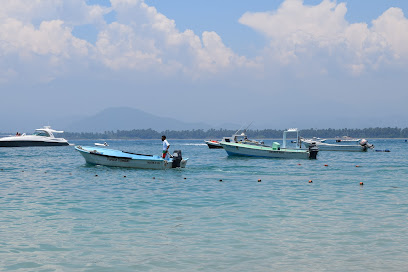
Zihuatanejo International Airport
Discover the charm and beauty of Zihuatanejo, Guerrero, at its International Airport — your gateway to breathtaking beaches and vibrant culture.
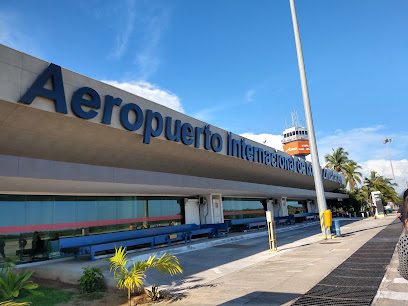
Museo Arqueológico de la Costa Grande
Uncover the ancient history and cultural heritage of Zihuatanejo at the Museo Arqueológico de la Costa Grande, a must-visit for all travelers.
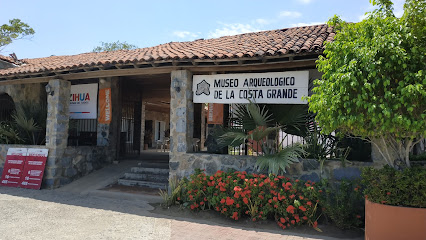
Hotel Ixtapa Palace Resort & Spa
Discover the ultimate beachfront luxury at Hotel Ixtapa Palace Resort & Spa, where relaxation meets adventure in the heart of Ixtapa Zihuatanejo.
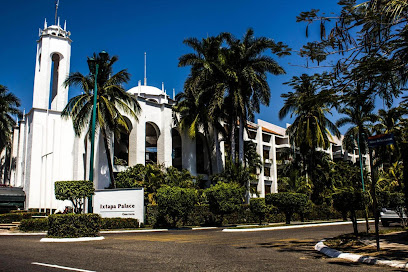
Unmissable attractions to see
Muelle Zihuatanejo
Explore Muelle Zihuatanejo, a lively boat ramp and gateway to the stunning Pacific coast, where adventure and local culture converge.
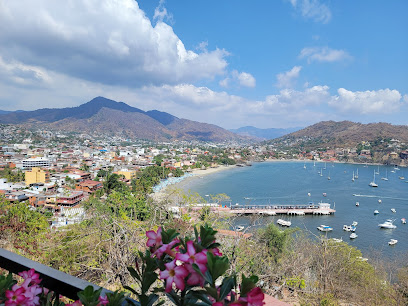
Playa Las gatas
Discover the tranquil beauty of Playa Las Gatas, a stunning beach in Zihuatanejo, Mexico, known for its calm waters and exquisite seafood dining.
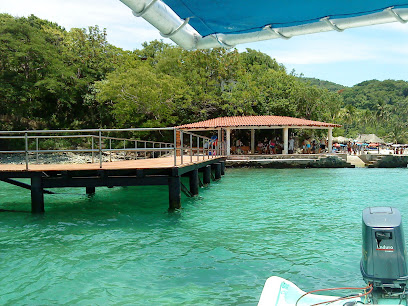
Delfiniti of Mexico
Discover the enchanting marine wonders at Delfiniti of Mexico, where unforgettable dolphin encounters await in Ixtapa Zihuatanejo.
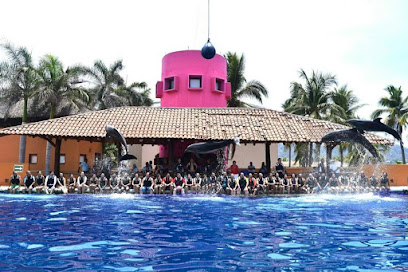
Malecón Zihuatanejo
Discover the beauty and culture of Zihuatanejo along the breathtaking Malecón, a must-visit promenade for every traveler seeking unforgettable experiences.
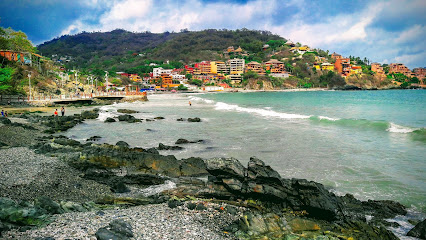
La Isla De Ixtapa Zihuatanejo, Playa Coral
Experience the allure of La Isla De Ixtapa Zihuatanejo, Playa Coral, where tropical charm meets thrilling beach activities in Mexico's stunning Guerrero region.
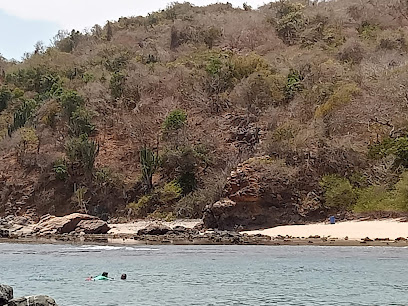
Museo Arqueológico de la Costa Grande
Discover the ancient treasures of Guerrero at Museo Arqueológico de la Costa Grande, a captivating museum in Zihuatanejo that showcases pre-Columbian artifacts.
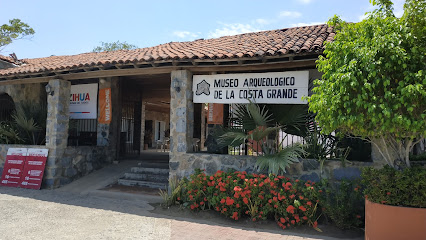
Letras IXTAPA
Experience the vibrant art and breathtaking views at Letras Ixtapa, a must-see tourist attraction in Zihuatanejo, Guerrero, Mexico.
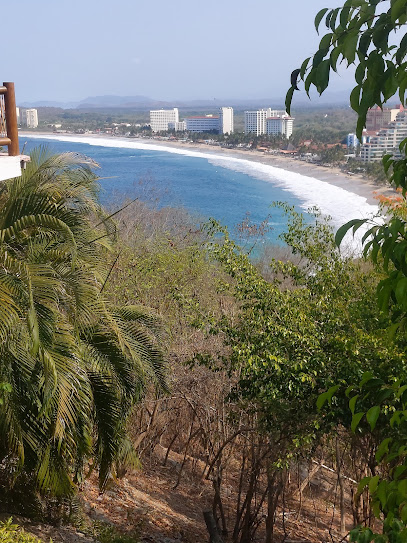
Marina Ixtapa
Experience the beauty and excitement of Marina Ixtapa, a vibrant marina in Ixtapa Zihuatanejo offering adventure, dining, and stunning coastal views.
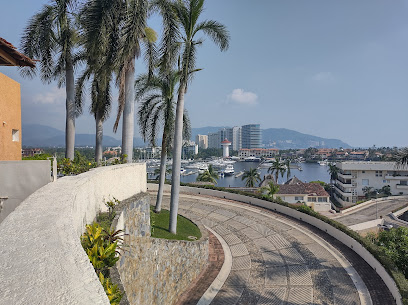
Playa El Palmar
Experience the breathtaking allure of Playa El Palmar, a stunning beach destination in Zihuatanejo, where relaxation meets adventure in paradise.
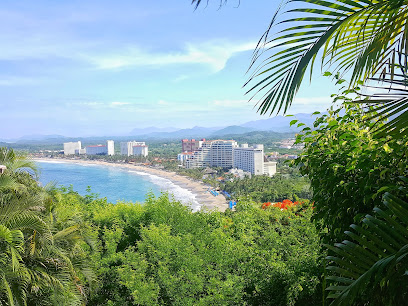
Partenón del Negro Durazo
Discover the breathtaking views and rich culture at Partenón del Negro Durazo, a must-visit tourist attraction in Zihuatanejo, Guerrero.
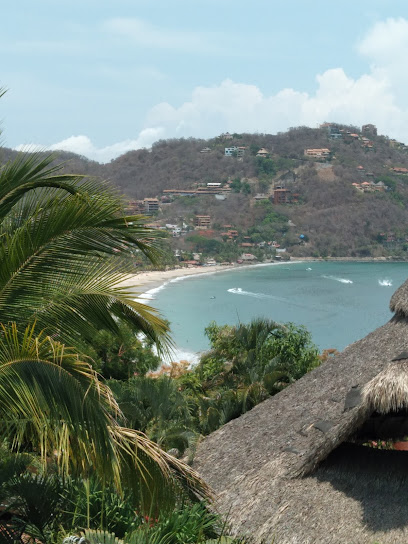
Isla Ixtapa
Explore Isla Ixtapa, a breathtaking island paradise in Guerrero, Mexico, known for its stunning beaches, vibrant marine life, and delicious local cuisine.
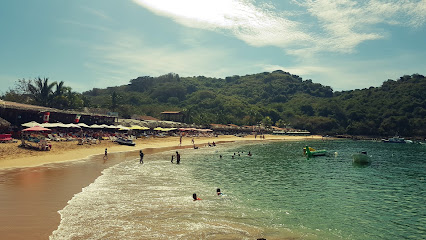
Playa Contramar
Experience the serene beauty of Playa Contramar, a picturesque public beach in Zihuatanejo perfect for relaxation, swimming, and snorkeling.
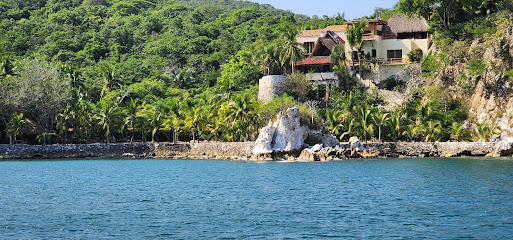
Campamento Tortuguero Ayotlcalli
Experience the magic of Campamento Tortuguero Ayotlcalli, where eco-tourism meets adventure and sea turtle conservation along Guerrero's stunning coastline.
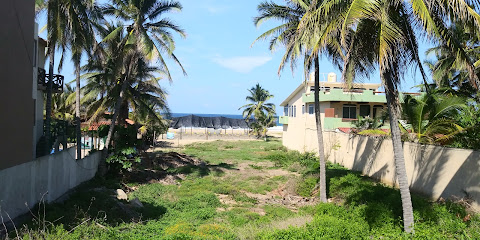
Bahia de Zihuatanejo
Explore Bahia de Zihuatanejo, a serene coastal retreat known for its stunning beaches, vibrant culture, and unforgettable sunsets in Guerrero, Mexico.
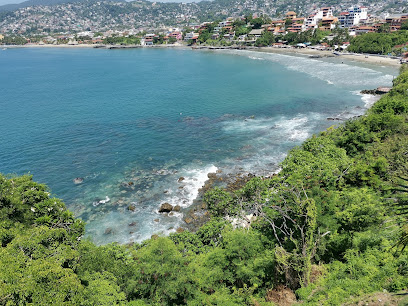
Zihuatanejo
Experience the charm of Zihuatanejo, a coastal paradise in Guerrero, Mexico, offering beautiful beaches, vibrant culture, and unforgettable adventures.
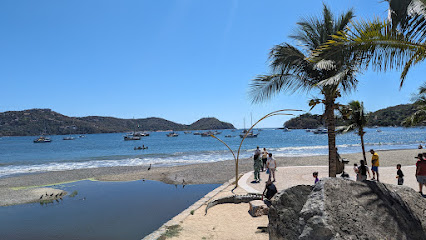
Essential places to dine
Restaurantes Mexicanos Any
Experience the best of authentic Mexican breakfast and lunch at Restaurantes Mexicanos Any in vibrant Zihuatanejo.
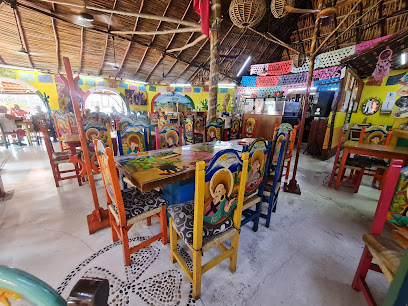
Restaurant El Tiburón De La Costa
Discover the best seafood in Ixtapa Zihuatanejo at El Tiburón De La Costa – where fresh flavors meet breathtaking ocean views.
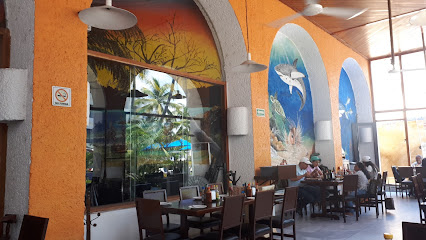
Carmelitas Café
Discover authentic Mexican cuisine at Carmelitas Café in Zihuatanejo - a perfect blend of flavor and warmth awaits you.
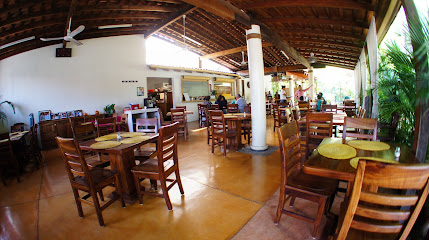
Margaritas Zihuatanejo Restaurant
Experience the vibrant flavors of brunch at Margaritas Zihuatanejo Restaurant, where fresh ingredients meet traditional recipes in a cozy setting.
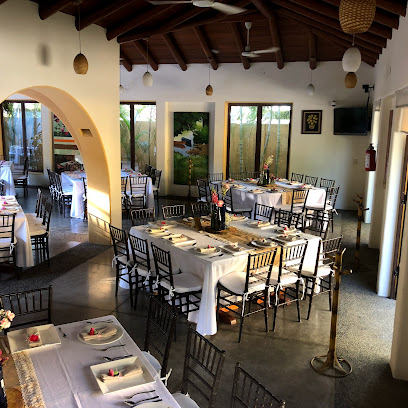
La Terracita
Experience authentic Mexican cuisine at La Terracita in Zihuatanejo—where every meal comes with stunning beach views.
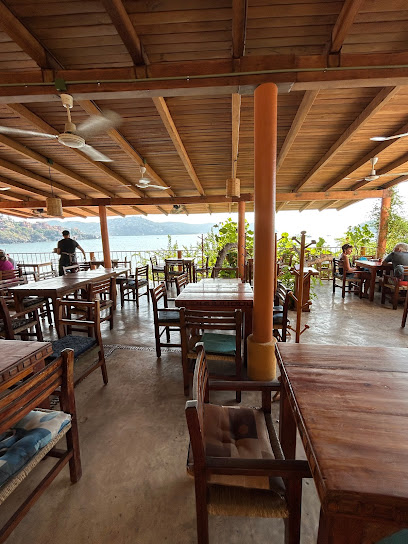
Restaurante Deborah's
Experience authentic Canadian cuisine in Zihuatanejo at Restaurante Deborah's - where taste meets tradition by the beach.
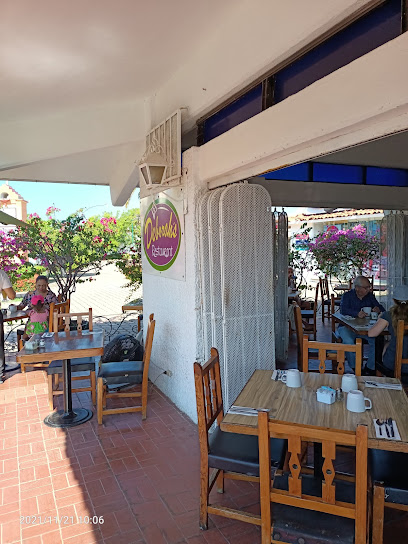
Emilio's Pizza
Discover authentic Italian flavors at Emilio's Pizza in Ixtapa - your destination for mouthwatering pizzas and warm hospitality.
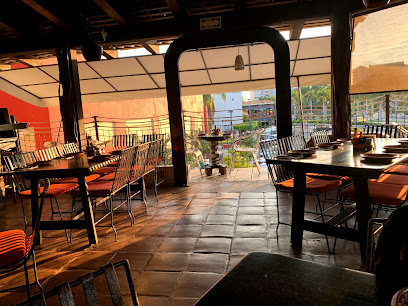
Fisher's Ixtapa
Experience fresh seafood delights at Fisher's Ixtapa – where coastal charm meets culinary excellence.
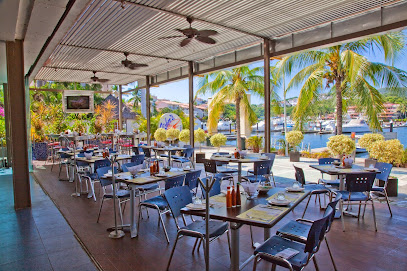
SR TACO GRILL
Discover the authentic taste of Mexico at SR Taco Grill in Ixtapa Zihuatanejo – where every bite is a fiesta!
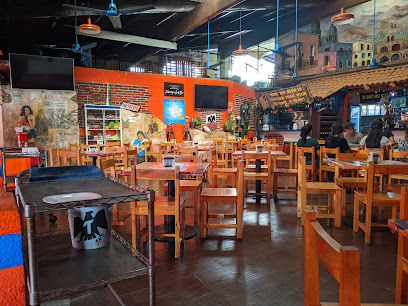
Señor Frog's
Experience vibrant Mexican culture at Señor Frog's in Ixtapa Zihuatanejo – where delicious cuisine meets lively entertainment.
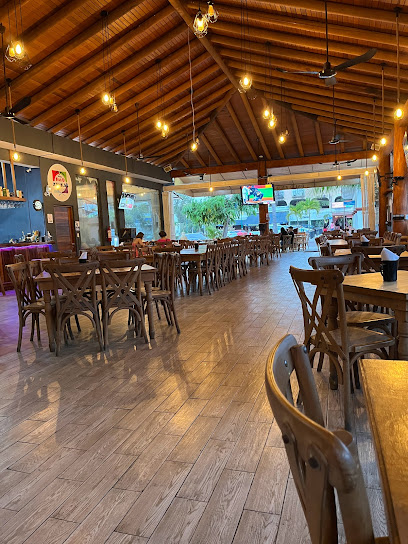
Restaurante Bistro del Mar
Experience fresh seafood delights at Restaurante Bistro del Mar in Zihuatanejo's stunning Playa la Madera.
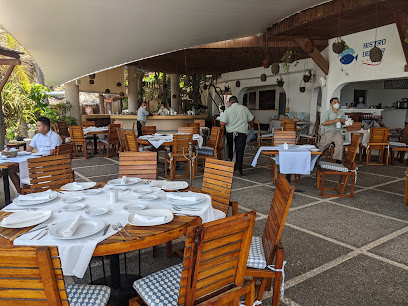
Casa Morelos
Discover authentic Mexican flavors at Casa Morelos in Ixtapa Zihuatanejo - a must-visit breakfast spot for food lovers!
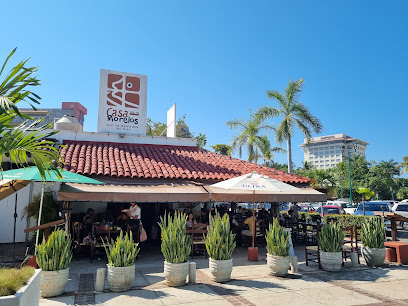
Bistro Soleiado
Experience exquisite French cuisine at Bistro Soleiado in Ixtapa Zihuatanejo - where every dish tells a story.
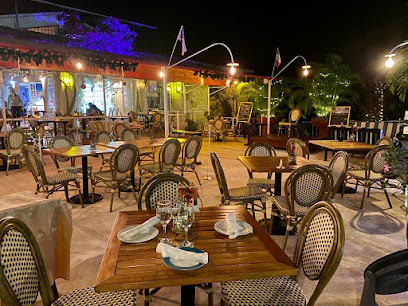
El Faro
Experience stunning ocean views and exquisite seafood at El Faro, Ixtapa's top destination for dining under spectacular sunsets.
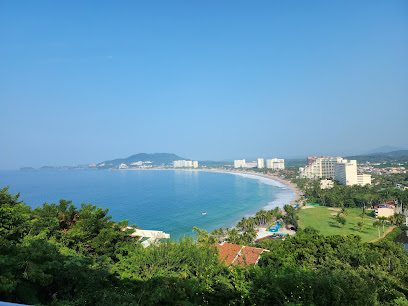
Frank's Bar & Grill Ixtapa
Savor authentic Mexican grilled dishes at Frank's Bar & Grill, where flavor meets fun in Ixtapa's vibrant Plaza Ixpamar.
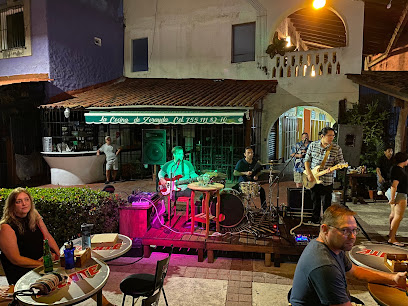
Markets, malls and hidden boutiques
Los Patios Mall Ixtapa
Explore Los Patios Mall in Ixtapa for an unforgettable shopping and dining experience in a vibrant coastal setting.
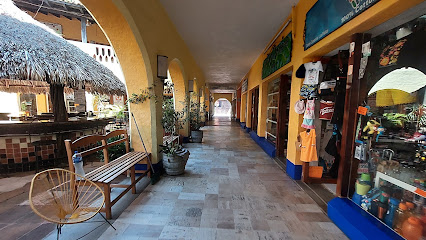
Centro Comercial La Puerta Ixtapa
Explore a vibrant shopping experience at Centro Comercial La Puerta Ixtapa, where local charm meets international brands in a delightful coastal setting.
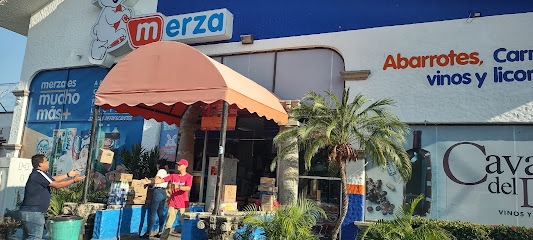
Siboney
Explore Siboney in Zihuatanejo for stylish swimwear and beachwear, perfect for your sunny getaway in Mexico.

Tucanê Ixtapa
Explore vibrant local fashion at Tucanê Ixtapa, where traditional artistry meets contemporary style in the heart of Ixtapa Zihuatanejo.

TicToc Boutique Boho Ixtapa
Discover unique fashion and home decor at TicToc Boutique Boho, capturing the vibrant spirit of Ixtapa with every piece.

Boutique MIC MAC
Explore Boutique MIC MAC in Ixtapa for unique fashion and handmade treasures that embody local culture and style.
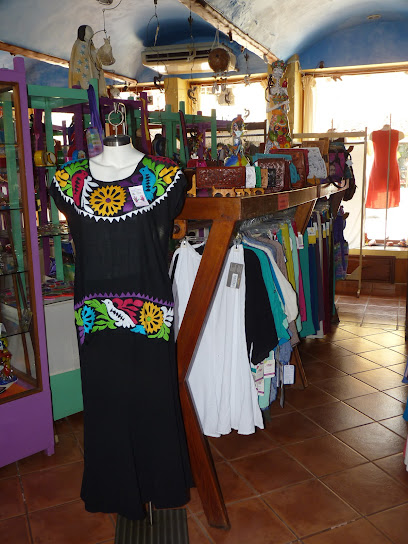
Squalo Ixtapa La Puerta
Discover stylish beachwear at Squalo Ixtapa, the ultimate destination for tourists seeking the perfect sun-soaked outfit in Zihuatanejo.

Billabong
Explore the vibrant styles of Billabong in Ixtapa Zihuatanejo—your go-to clothing store for beachwear and casual attire.

Salamanca’s Boutique
Explore Salamanca’s Boutique in Ixtapa Zihuatanejo for stylish clothing, chic accessories, and unique swimwear to perfect your vacation wardrobe.

La Playita Boutique
Explore La Playita Boutique in Zihuatanejo for authentic Mexican gifts and handcrafted treasures that capture the spirit of the region.
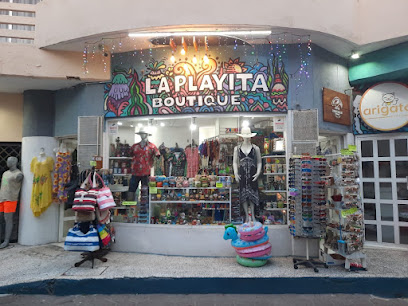
Boutique La Fuente
Explore unique fashion and handcrafted treasures at Boutique La Fuente in Ixtapa Zihuatanejo's commercial hub for an unforgettable shopping experience.
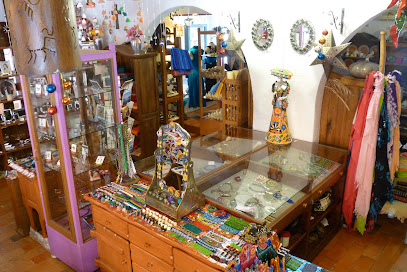
Boutique Arena's
Discover unique fashion gems at Boutique Arena's, Ixtapa's premier clothing store featuring vibrant styles and local flair.

Delfines Boutique
Explore the vibrant Delfines Boutique in Ixtapa Zihuatanejo, where local crafts and fashion come together in a unique shopping experience.
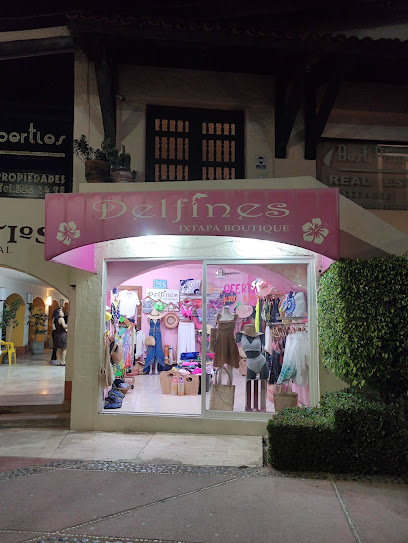
Mexico Lindo KM
Explore Mexico Lindo KM – your go-to gift shop in Ixtapa Zihuatanejo for unique Mexican souvenirs and artisan crafts!
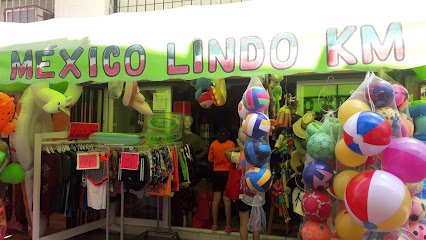
Mexican Souvenirs
Explore a vibrant selection of authentic Mexican souvenirs, handcrafted treasures, and delicious chocolates in Ixtapa Zihuatanejo.

Essential bars & hidden hideouts
Mentiritas
Mentiritas: A vibrant bar in Zihuatanejo offering delightful Mexican cuisine and refreshing drinks in a lively atmosphere.
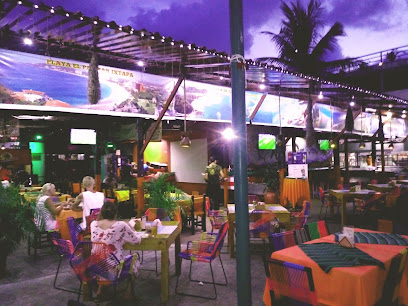
Señor Frog's
Discover the lively ambiance and delicious flavors at Señor Frog's, a must-visit Mexican restaurant and pub in Ixtapa Zihuatanejo.
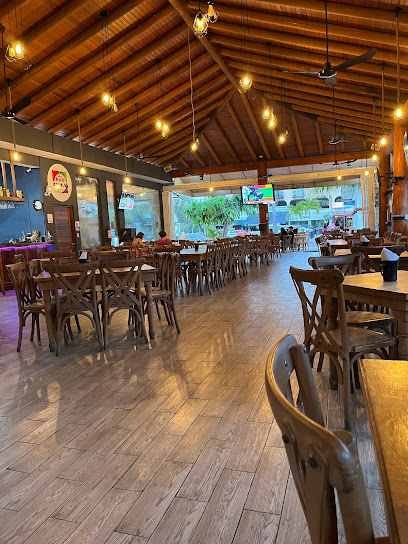
Frank's Bar & Grill Ixtapa
Experience the best of Ixtapa's culinary scene at Frank's Bar & Grill, where delicious grilled dishes and a vibrant atmosphere await.
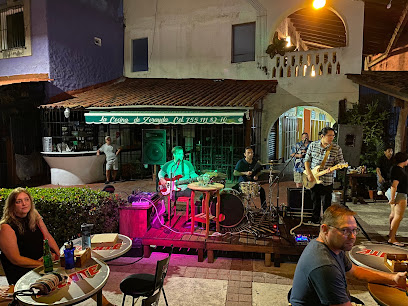
The Generals Sports Bar & Restaurant
Experience the best of American cuisine at The Generals Sports Bar & Restaurant in Ixtapa, where great food and sports come alive.
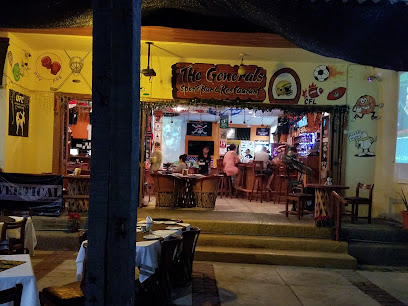
Ohana Ixtapa
Experience the vibrant nightlife at Ohana Ixtapa, where cocktails, music, and tropical vibes blend for an unforgettable evening.

Christine Club
Experience the pulse of Ixtapa's nightlife at Christine Club, the ultimate disco and bar destination for unforgettable nights.

RESTAURANTE BAR TEQUILA Y SALSA BRAVA
Experience the vibrant flavors of Mexico at Restaurante Bar Tequila y Salsa Brava, where delicious grilled dishes and refreshing drinks await in Zihuatanejo.
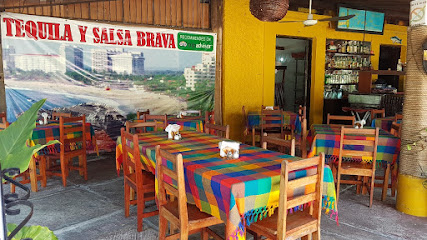
Bogart's Bar & Restaurant
Explore the vibrant flavors of Ixtapa Zihuatanejo at Bogart's Bar & Restaurant, where grilled delights meet a lively bar atmosphere.

Coconuts Restaurant & Bar
Discover the vibrant flavors of Zihuatanejo at Coconuts Restaurant & Bar, where grilled delights meet refreshing drinks in a lively atmosphere.
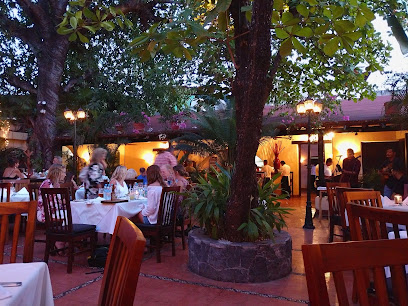
Alex sport bar
Discover the lively atmosphere at Alex Sport Bar in Ixtapa, where drinks, sports, and entertainment come together for an unforgettable night out.
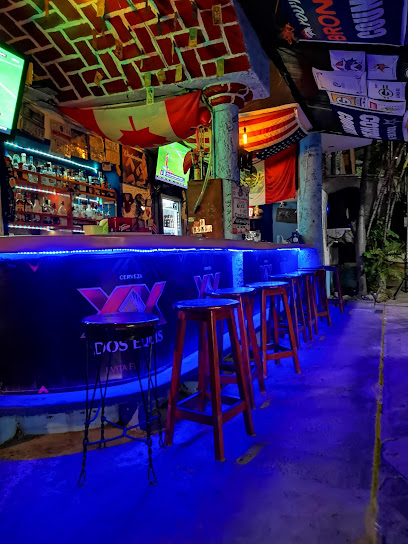
El Camino
Experience the vibrant nightlife at El Camino, the go-to bar in Ixtapa Zihuatanejo for affordable drinks and a lively atmosphere.
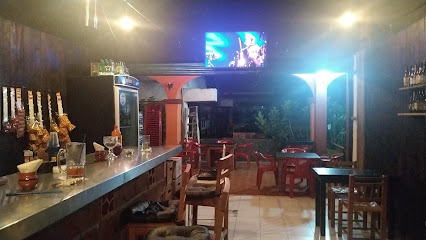
Zorro’s Bar Ixtapa
Experience the vibrant nightlife of Ixtapa at Zorro’s Bar, where refreshing cocktails and a lively atmosphere await.
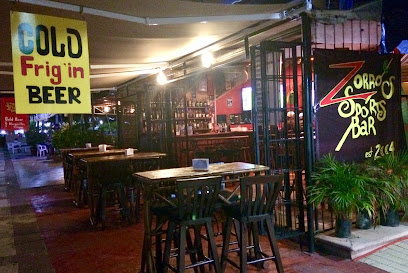
Bar Arena Ixtapa
Experience vibrant nightlife and relaxing seaside vibes at Bar Arena Ixtapa, the perfect tropical escape for tourists in Guerrero, Mexico.
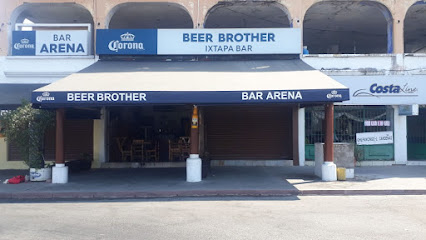
Bar La Madrina Ixtapa
Experience the vibrant nightlife at Bar La Madrina Ixtapa, where delicious cocktails and a lively atmosphere await in a tropical paradise.
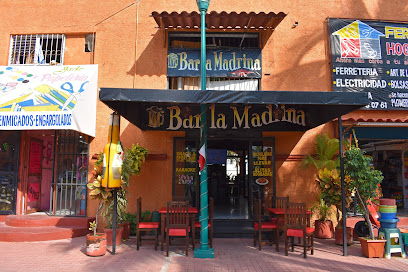
Local Phrases
-
- HelloHola
[oh-lah] - GoodbyeAdiós
[ah-dee-ohs] - YesSí
[see] - NoNo
[noh] - Please/You're welcomePor favor/De nada
[por fah-bor/de nah-dah] - Thank youGracias
[grah-see-ahs] - Excuse me/SorryPerdón/Lo siento
[pair-dohn/loh see-ehn-toh] - How are you?¿Cómo estás?
[koh-moh ehs-tahs] - Fine. And you?Bien. ¿Y tú?
[bee-ehn. ee too] - Do you speak English?¿Hablas inglés?
[ah-blahs een-glehs] - I don't understandNo entiendo
[noh ehn-tee-ehn-doh]
- HelloHola
-
- I'd like to see the menu, pleaseMe gustaría ver el menú, por favor
[meh goo-stah-ree-ah behr ehl meh-noo, por fah-bor] - I don't eat meatNo como carne
[noh koh-moh kahr-neh] - Cheers!¡Salud!
[sah-lood] - I would like to pay, pleaseMe gustaría pagar, por favor
[meh goo-stah-ree-ah pah-gar, por fah-bor]
- I'd like to see the menu, pleaseMe gustaría ver el menú, por favor
-
- Help!¡Ayuda!
[ah-yoo-dah] - Go away!¡Vete!
[veh-teh] - Call the Police!¡Llama a la Policía!
[yah-mah ah lah poh-lee-see-ah] - Call a doctor!¡Llama a un médico!
[yah-mah ah oon meh-dee-koh] - I'm lostEstoy perdido
[ehs-toy pair-dee-doh] - I'm illEstoy enfermo
[ehs-toy ehn-fehr-moh]
- Help!¡Ayuda!
-
- I'd like to buy...Me gustaría comprar...
[meh goo-stah-ree-ah kohm-prahr] - I'm just lookingSólo estoy mirando
[soh-loh ehs-toy mee-rahn-doh] - How much is it?¿Cuánto cuesta?
[kwan-to kwehs-tah] - That's too expensiveEso es demasiado caro
[eh-soh ehs deh-mah-syah-doh kah-roh] - Can you lower the price?¿Puedes bajar el precio?
[pweh-dehs bah-har ehl pree-syoh]
- I'd like to buy...Me gustaría comprar...
-
- What time is it?¿Qué hora es?
[keh oh-rah ehs] - It's one o'clockEs la una
[ehs lah oo-nah] - Half past (10)Y media (10)
[ee meh-dee-ah (deez)] - MorningMañana
[mah-nyah-nah] - AfternoonTarde
[tahr-deh] - EveningNoche
[noh-cheh] - YesterdayAyer
[ah-yehr] - TodayHoy
[oy] - TomorrowMañana
[mah-nyah-nah] - 1Uno
[oo-noh] - 2Dos
[dohs] - 3Tres
[trehs] - 4Cuatro
[kwah-troh] - 5Cinco
[seen-koh] - 6Seis
[says] - 7Siete
[syeh-teh] - 8Ocho
[oh-choh] - 9Nueve
[nweh-veh] - 10Diez
[dyehs]
- What time is it?¿Qué hora es?
-
- Where's a/the...?¿Dónde está un/el...?
[dohn-deh ehs-tah oon/ehl] - What's the address?¿Cuál es la dirección?
[kwahl ehs lah dee-rehk-syohn] - Can you show me (on the map)?¿Puedes mostrarme (en el mapa)?
[pweh-dehs mohs-trahr-meh (ehn ehl mah-pah)] - When's the next (bus)?¿Cuándo pasa el próximo (autobús)?
[kwan-doh pah-sah ehl proh-ksee-moh (ow-toh-boos)] - A ticket (to ....)Un boleto (a ...)
[oon boh-leh-toh (ah ...)]
- Where's a/the...?¿Dónde está un/el...?
History of Ixtapa-Zihuatanejo
-
Before the arrival of the Spanish, the region that is now Ixtapa-Zihuatanejo was inhabited by indigenous groups such as the Cuitlatecs and the Tarascans. These indigenous peoples thrived on the abundant natural resources, engaging in fishing, agriculture, and trade.
-
In the early 16th century, Spanish explorers, led by Hernán Cortés, began their conquest of Mexico. The coastal region of Zihuatanejo was officially claimed by the Spanish in 1522. The name 'Zihuatanejo' is derived from the Nahuatl language, meaning 'place of women,' which may refer to the goddesses worshipped by the indigenous people.
-
During the colonial period, Zihuatanejo became a small but significant port for Spanish galleons. The port facilitated the trade of silver and other goods between New Spain (Mexico) and the Philippines. Despite its strategic importance, the area remained relatively undeveloped and sparsely populated.
-
In the late 16th and early 17th centuries, the Pacific coast of Mexico, including Zihuatanejo, was frequently targeted by pirates. These attacks prompted the Spanish authorities to fortify the coastline and establish military outposts to protect their trade routes and settlements.
-
After Mexico gained independence from Spain in 1821, the region of Zihuatanejo slowly began to grow. Fishing continued to be a primary economic activity, and the town remained a quiet, picturesque fishing village for much of the 19th and early 20th centuries.
-
In the early 1970s, the Mexican government, through the National Fund for Tourism Development (FONATUR), initiated a project to develop a new tourist destination on the Pacific coast. The result was Ixtapa, a modern resort area built on what was once a coconut plantation. The development included luxury hotels, golf courses, and a marina, transforming the area into a major tourist destination.
-
Today, Ixtapa-Zihuatanejo is a thriving twin-destination that combines the old-world charm of Zihuatanejo with the modern amenities of Ixtapa. The area attracts tourists from around the world, drawn by its beautiful beaches, rich cultural heritage, and warm hospitality. Despite its growth, efforts have been made to preserve the natural beauty and cultural traditions of the region.
Ixtapa-Zihuatanejo Essentials
-
Ixtapa-Zihuatanejo is accessible via the Ixtapa-Zihuatanejo International Airport (ZIH), which has direct flights from several major cities in the United States and Mexico. From the airport, you can take a taxi or a shuttle service to your accommodation. Alternatively, you can drive to Ixtapa-Zihuatanejo from Mexico City, which is approximately a 7-8 hour drive.
-
Within Ixtapa-Zihuatanejo, taxis are the most common form of transportation and are generally safe and reliable. You can also rent a car if you prefer to explore the area at your own pace. Public buses are available and are an economical option for getting around. For a more local experience, consider taking a 'colectivo,' which is a shared taxi.
-
The official currency in Ixtapa-Zihuatanejo is the Mexican Peso (MXN). Credit cards are widely accepted in hotels, restaurants, and larger shops. However, it is advisable to carry some cash for smaller establishments and markets. ATMs are readily available throughout the area, but it's a good idea to inform your bank of your travel plans to avoid any issues with card transactions.
-
Ixtapa-Zihuatanejo is generally safe for tourists. However, it is advisable to take standard precautions such as avoiding poorly lit areas at night and not displaying valuables openly. Be cautious in areas known for higher crime rates, such as certain parts of downtown Zihuatanejo. Always use reputable transportation services and avoid accepting rides from strangers.
-
In case of emergency, dial 911 for immediate assistance. The local police and medical facilities are available and generally reliable. It is recommended to have travel insurance that covers medical emergencies. For minor health issues, there are numerous pharmacies where you can purchase over-the-counter medications.
-
Fashion: Do dress comfortably and appropriately for the beach, but avoid overly revealing clothing in town. Religion: Do respect local customs and any religious sites you visit. Public Transport: Do have small change ready for bus fares and be respectful to drivers. Greetings: Do greet people with a handshake and a smile. Eating & Drinking: Do try local cuisine and street food, but avoid drinking tap water; opt for bottled water instead.
-
To experience Ixtapa-Zihuatanejo like a local, visit the Mercado Municipal in Zihuatanejo for fresh produce and local goods. Engage with local fishermen in Zihuatanejo Bay for a chance to hear fascinating stories and maybe even join a fishing trip. Don't miss the sunsets at Playa La Ropa, which are a favorite among locals. For a unique experience, take a bike ride along the Ciclopista, a scenic bike path connecting Ixtapa and Zihuatanejo.
Trending Landmark in Ixtapa-Zihuatanejo
-
Cocodrilario Playa Linda
-
Park Royal Beach Ixtapa
-
Krystal Ixtapa
-
Sunscape Dorado Pacifico Ixtapa
-
Muelle Zihuatanejo
-
Rubens Hamburgers Ixtapa
-
Delfiniti of Mexico
-
La Papa Loca
-
Club Med Ixtapa Pacific, Mexico
-
Restaurant El Tiburón De La Costa
-
Malecón Zihuatanejo
-
La Isla De Ixtapa Zihuatanejo, Playa Coral
-
Zihuatanejo International Airport
-
Museo Arqueológico de la Costa Grande
-
Hotel Ixtapa Palace Resort & Spa
Nearby Cities to Ixtapa-Zihuatanejo
-
Things To Do in Guanajuato
-
Things To Do in Monterrey
-
Things To Do in Guadalajara
-
Things To Do in San Miguel de Allende
-
Things To Do in Queretaro
-
Things To Do in Puerto Vallarta
-
Things To Do in McAllen
-
Things To Do in Laredo
-
Things To Do in Matamoros
-
Things To Do in Brownsville
-
Things To Do in Mexico City
-
Things To Do in South Padre Island
-
Things To Do in Taxco
-
Things To Do in Puebla
-
Things To Do in Corpus Christi












